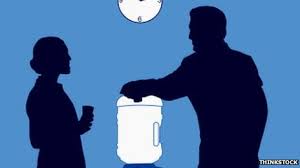Leaders Who Embrace Resolve & Compassion
Dear Springboard:
This has been a tough slog. My team is worn out and I’m worn out. I’m slipping into a place where I don’t care anymore. What to do?
Sign me,
Need to Keep My Chin Up
Dear NtKMCU:
David Brooks’ column in last Friday’s New York Times got my attention. He reported that after traveling around several states speaking to a range of people and a mental review of his social media feed and some media most-viewed lists, he found the dominant mood to be indifference.
That worries me.
The opposite of love isn’t hate, it’s indifference. It’s disengaging, detaching . . . giving up. It’s the absence of passion and drive.
It’s not surprising that people are feeling discouraged as the Delta variant set us back, and squashed the hope of everyday life opening up and becoming at least closer to fully functioning.
Our pandemic may well drag on and evolve into an endemic. That means living long term with some version of Covid. Even New Zealand has given up on being Covid-free. It could become a regular part of our lives – like the flu, but with much more dire consequences.
If that does lie ahead, the much talked about agility and resilience will be even more critical as competencies.
Right after reading Brooks’ article, I saw a different article about a new emoji. It was greeted with delight as capturing the current mood. “It stood out as a visual proxy for our collective malaise,” said the headline in the NYT article.
While it’s easy to jump on the misery-loves-company bandwagon, the better leaders will resist. It oozes resignation.
This takes me back to my leadership training with Coaches Training Institute. More than once, I saw our program leaders dig deep and show up fully despite being exhausted and not feeling well. With not a word of complaint or excuse, they showed heart, determination, and honored their core values to fulfill their mission of facilitating our program.
Highlighting my admiration for grit is not meant to diminish the importance of people taking care of themselves.
It is about a mindset to both show up as best we can AND put on our own oxygen mask.
The leaders I coach sometimes forget how much their reports and peers notice how they respond to circumstances. People take cues from their leaders, even unknowingly.
The message in You Have More Influence Than You Think is what the title says. Vanessa Bohns cites dozens and dozens of studies that show how we underestimate our impact and overestimate that of others, and how this misperception is disempowering.
It’s a reminder that we can lead from any chair in the room. If we look for it, we will notice voids of leadership – big and small. There are opportunities to step up and make a difference.
I envision positive actions demonstrating:
- Support
- Respect
- Appreciation
- Concern for others
- Inclusiveness and welcoming
- Excellence and achievement
Let’s avoid supporting the creation of adversity (maybe through inaction) and then responding to objections by telling them to suck it up and develop some resilience.
Instead, let them know they matter; the work they do makes a difference and how it ties to something important. The brick layer doing his part, building a cathedral.
Remember that if we don’t like what’s happening or what’s being said or not said, it can be an invitation to speak up.
An old coach friend of mine used to ask me, “What would you do if you were 10 times braver?”
Another theme in the Influence book was the cost of not acting to avoid risking embarrassment.
People consistently overestimated their likelihood to act in demanding circumstances. When they were actually faced with a dilemma, most held back out of the fear of being embarrassed.
Leadership takes courage, having the courage of our convictions. It can mean sticking our neck out and taking a risk. Speaking up early, speaking up at all.
The Arbinger Institute’s model shows that when we don’t honor our own values, the tendency is to make up a story to make others wrong to justify our behavior.
Some may feel it’s all so overwhelming — what the use, what difference can I make?
Consider the story of the girl and starfish: a storm has washed up thousands of starfish on an ocean beach.
On a sunny morning, the little girl is throwing them back into the sea one by one. A man walks up and says “What are you doing? There are so many, you can’t possibly make a difference.” As she threw one more back into the outgoing tide, she said, “Made a difference for that one!”
While many will endorse the melting smiley face and surrender a piece of their will in doing so, the powerful leaders will champion optimism, hope and comradery—demonstrating their resolve and compassion.
Their people will feel seen, valued, and a part of.
From the Watercooler
springboard

